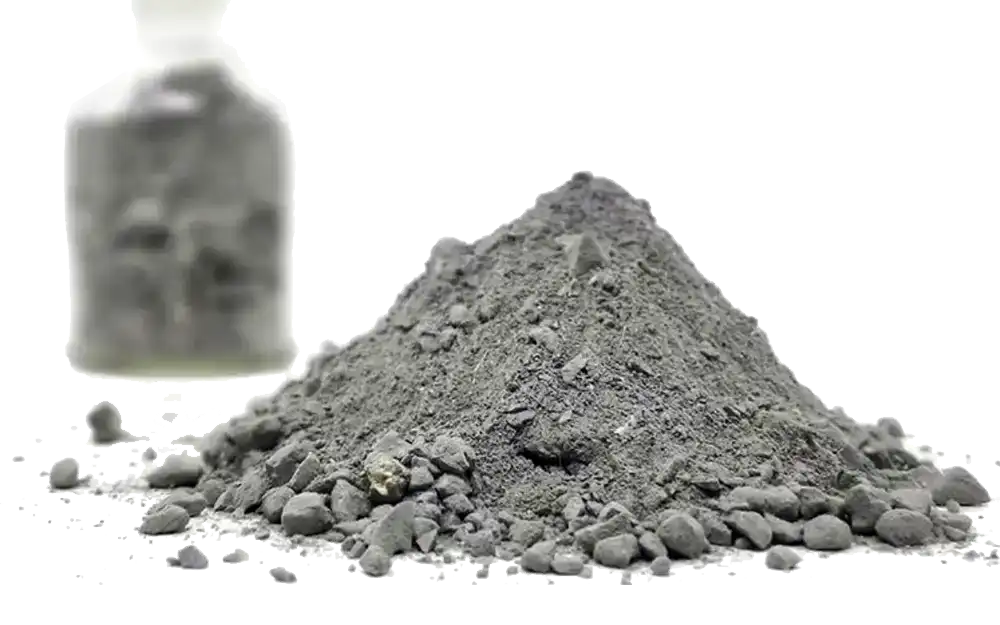Dense castable refractory, also known as DC refractory, is a high-density refractory material valued for its exceptional physical and chemical properties. Its superior thermal resistance, shock resistance, and structural integrity make it an ideal choice for constructing heat-resistant structures and insulation applications.
Key Characteristics of Dense Castable Refractory
- High Density: Dense castable refractories exhibit high density compared to lightweight insulating castables. This attribute contributes to their enhanced thermal resistance and mechanical strength.
- High Alumina Content: These refractories typically contain a higher percentage of alumina compared to lightweight castables. Alumina, a renowned refractory material, provides exceptional heat resistance and stability.
Distinguishing Dense Castable from Lightweight Castable
The primary distinction between dense castable and lightweight castable refractories lies in their density and alumina content. Dense castable refractories possess higher density and alumina content, resulting in superior thermal resistance, compressive strength, and dimensional stability.
Applications of Dense Castable Refractory
Dense castable refractories find widespread applications across various industries, particularly in demanding environments:
- Boilers: Lining boiler tubes and ash hoppers to conserve heat and protect boiler components from corrosion and erosion.
- Steel Industry: Constructing furnace linings and floors to withstand high temperatures and heavy loads.
- Automotive Industry: Providing thermal protection for undercarriages against engine heat.
- Oil and Gas Industry: Lining sealing tanks in FCCU vessels.
- Metallurgical Industry: Constructing burner blocks and other metallurgical equipment.
- General Refractory Applications: Lining industrial furnaces, chimneys, ladles, and other heat-exposed equipment.
Advantages of Dense Castable Refractory
Dense castable refractories offer several compelling advantages over other refractory materials:
- Exceptional Thermal Resistance: Withstands extremely high temperatures without melting or deforming.
- High Compressive Strength: Exhibits exceptional compressive strength, enabling it to withstand heavy loads and pressures in industrial applications.
- Dimensional Stability: Maintains its shape under fluctuating temperatures, preventing cracking or spalling.
- Effective Thermal Insulation: Minimizes heat loss, ensuring efficient heat retention in industrial equipment.
- Corrosion Resistance: Resists attack from corrosive chemicals, extending its lifespan.
Technical Specifications
Dense castable refractories are available in various grades and specifications tailored to specific applications and requirements. Key parameters to consider when selecting dense castable refractories include:
- Compressive Strength: Maximum pressure the refractory can withstand before breaking.
- Heat Resistance: Maximum temperature the refractory can endure without melting or deforming.
- Density: Weight of the refractory per unit volume.
- Thermal Conductivity: Rate of heat transfer through the refractory.
- Corrosion Resistance: Ability to withstand corrosive chemicals.

Selection Considerations
Choosing the appropriate dense castable refractory for a specific application depends on various factors, including the type of equipment, operating temperature, applied pressures, and chemicals encountered. Consulting with experienced professionals in this field is recommended for optimal selection.
Conclusion
Dense castable refractory stands out as a reliable and versatile material for constructing heat-resistant structures and providing effective insulation in demanding industrial environments. Its exceptional thermal resistance, structural integrity, and corrosion resistance make it an indispensable choice for a wide range of applications.


Leave a Reply